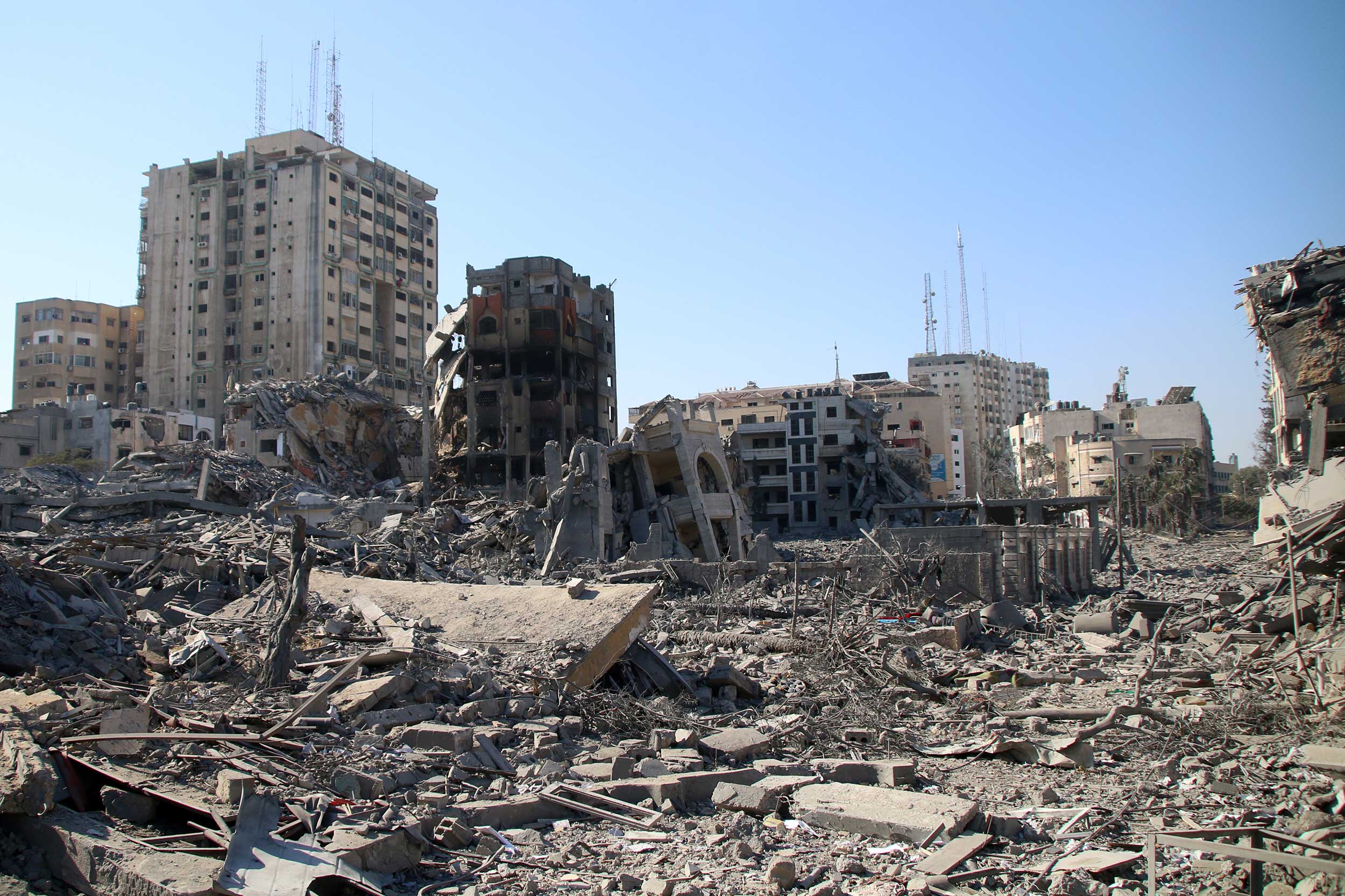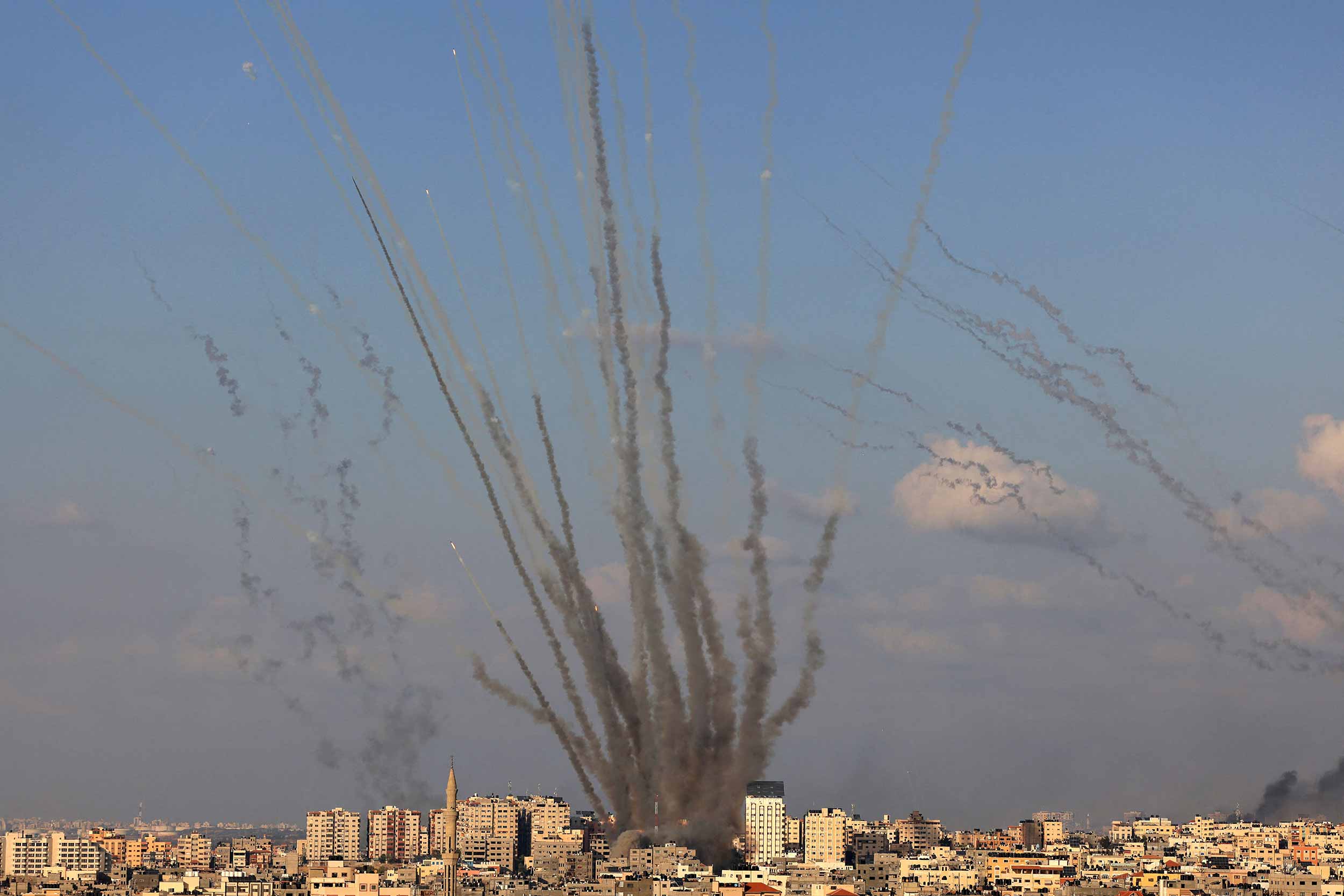Israel: “I Witnessed Horrific Crimes”
An Israeli journalist who covered the kibbutz massacres describes anger, fear and denial.
On October 7 I was woken by a call from a colleague telling me there were rocket attacks in the south. It was then I realised there were also sirens sounding in my neighbourhood in Tel Aviv.
On the way south, we saw smoke rising from various Israeli villages but decided to continue to Sderot, a town near the border with Gaza. Social media reports indicated that Hamas militants had raided the town. At the entrance to the city, armed police pointed guns at us and ordered us to turn back. We continued to the city of Ashkelon where it seemed the situation was not under control. Rockets had hit many locations but the emergency services couldn’t reach all of them and citizens had to put out fires by themselves.
“We will see demands for an explanation from those in power as to how such an unprecedented attack could happen.”
Around noon, a number of photographers grouped together and drove back towards the town of Sderot. Already at the entrance to the town, we understood the nature of the catastrophe. Bodies were strewn across the road and only a small group of security forces were present. Only later we learnt the scale of the attack and how unprepared the security forces were, having to divide themselves between multiple incidents along the border with Gaza. A Palestinian pick-up truck with a machine gun fixed to the top was parked outside the police station, whilst a gun battle was taking place inside between Hamas militants and Israeli security forces.
In the days that followed, we learnt about the scale of the attack by Hamas which left at least 1,300 dead and over 200 kidnapped. I visited the communities near the Israeli-Gaza border fence that were sites of the attacks by Hamas and later on by Palestinian civilians who saw the fence had been breached and entered the Israeli villages. Some of them committed horrific crimes, while others took the opportunity to leave Gaza for the first time. Many engaged in looting, taking bikes and other belongings they could find with them.

It’s important to state that despite a lot of misinformation, I saw the crimes committed by Hamas in the villages of Be’eri, Kfra Aza, Niz Oz and Kissufim with my own eyes. Whole families, including women and children, were murdered in their beds or in the shelters where they took cover from the rockets. Other horrific acts that are hard to put into words were also evident in the villages. Traces in the places I visited days after the attacks clearly showed civilians were intentionally targeted and not only soldiers as some have claimed. This was especially evident at the site of the Nova music festival near the town of Re’im where militants killed 260 partygoers.
“I saw the crimes committed by Hamas with my own eyes. Whole families, including women and children, were murdered.”
As an Israeli journalist, I cannot cover what is happening in Gaza. Since the disengagement in 2005 Israeli journalists cannot enter Gaza and international press and humanitarian workers need special permits. In the recent weeks in the South we can see, even without zoom lenses, the massive bombardments of Gaza. Talking to Palestinian colleagues in Gaza I learnt that this attack is worse than anything Gazans have lived through before. Amid the lack of water, food, fuel and electricity, journalists there find it almost impossible to cover the events. Many of them have themselves had to flee from the north to the south of Gaza where Israel claimed Gazans would be safe to take shelter.
While Israel is swept by calls for revenge on the political level and also among the public, with calls to erase and re-occupy Gaza, the relatives of the 220 captives held in Gaza are terrified for the fate of their loved ones. They fear that a ground invasion will put their lives risk and prevent any negotiation or deal for their release. After the release of 85-year-old Yocheved Lifshitz ,she gave a testimony in which she said she was treated “well”. This gives hope to the families of those still being held that their loved ones are also being held in underground tunnels and having their basic needs met.

While the ground invasion might be being delayed because of pressure from US President Joe Biden and other Western leaders, it seems inevitable. The Israeli government wants to be seen to be doing something and the public pressure to “destroy Hamas” is huge.
The horrifying reality that more than 7,000 people have already been killed in Gaza, including entire families, is barely covered by the Israeli media. The Israeli public therefore lives with the conception that Gazans haven’t yet “paid the price” for what happened on October 7. As an Israeli I reject this sick logic where innocent people have to pay the price for the actions of Hamas.
Since the beginning of the war the Israeli police and law enforcement authorities have arrested over 100 Israeli citizens, most of them Palestinians, because of their social media posts. Some did express support for Hamas, whilst others merely expressed basic solidarity with the people of Gaza - labeled as incitement in the current atmosphere. This includes professors, local politicians and artists. The general sentiment among Palestinians with Israeli citizenship is a fear of expressing any opinion.
The chief of police banned any Gaza solidarity protests, including quiet vigils, under the assumption that these would automatically equate to support of Hamas and Islamic Jihad and other armed groups. Israeli Jewish activists holding quiet vigils calling for prisoner swaps were disbanded by the police.
In this reality it seems only the families of victims or kidnapped Israelis can speak up, and some have chosen to call to end the violence and the war despite the tragedy they went through. They told me that revenge and killing innocent people won’t bring their loved ones back but will create more suffering. They think the solution is only diplomatic and political and not one of military force.

While the Israeli public and the international community are focused on southern Israel and Gaza, settlers in the West Bank are taking advantage of the situation and increasing their ongoing efforts to push Palestinian communities from area C. Since the beginning of the war, they managed to violently evict 500 Palestinian residents from their homes, including eight communities that were totally dismantled. Israeli settlers have killed at least five unarmed Palestinians and around 100 have been killed by the Israeli army since the beginning of the war. Some of the extreme settlers are also seeing this war as an opportunity to promote a return to the Israeli settlements that were evicted from the Gaza Strip in 2005.
Israeli authorities have been notably absent in taking responsibility for the families of the victims and the hostages, and the more than 200,000 Israelis who have had to leave their homes. In their place civilians and volunteers have stepped in to take many key roles.
Many of the civil volunteers were part of the protest movement against Netanyahu and the judicial overhaul before the war began. In the near future, we will probably see them taking back to the streets and demanding an explanation from all those in positions of power for how such an unprecedented attack could happen.
Oren Ziv is an Israeli photojournalist and reporter, and a founding member of the Activestills photography collective.

